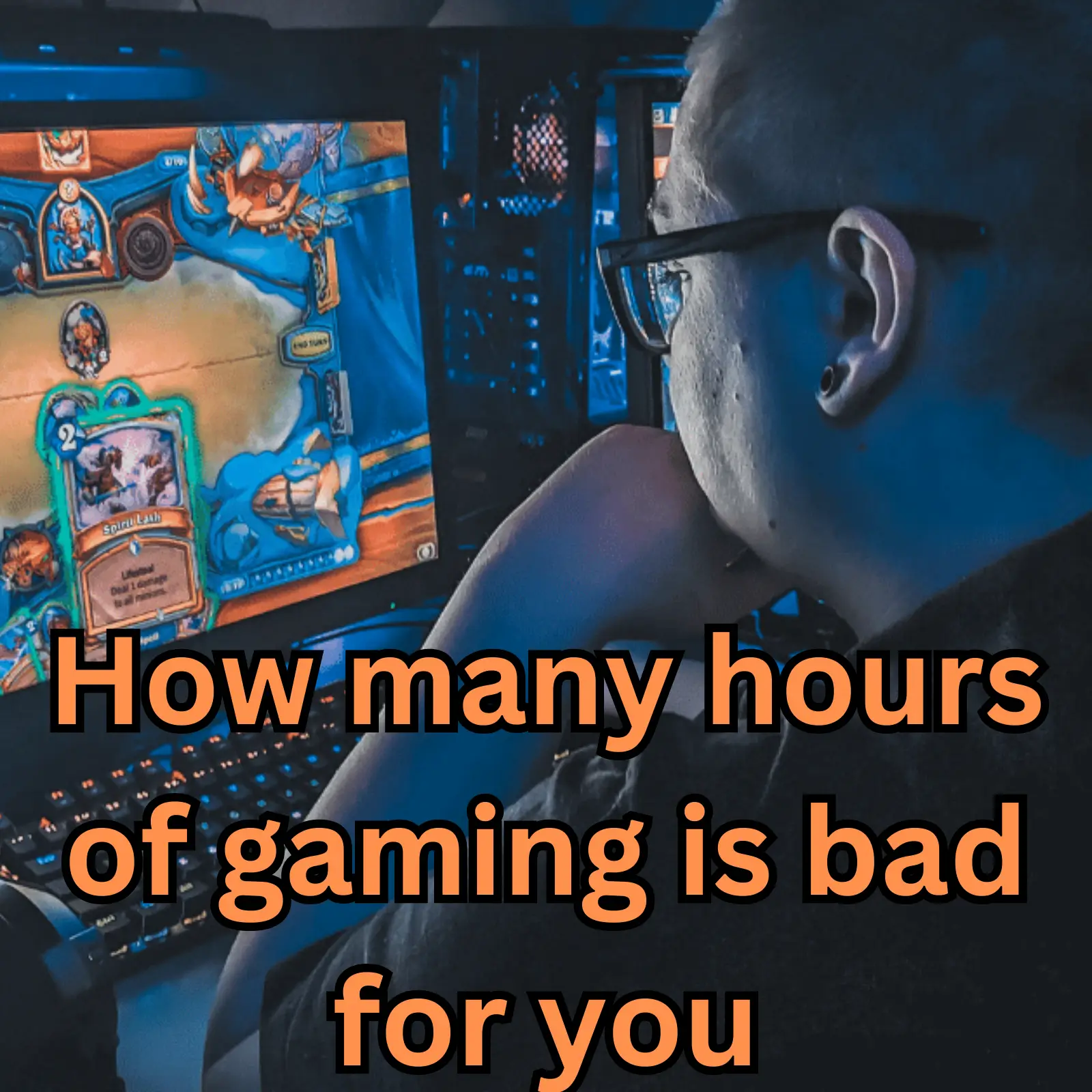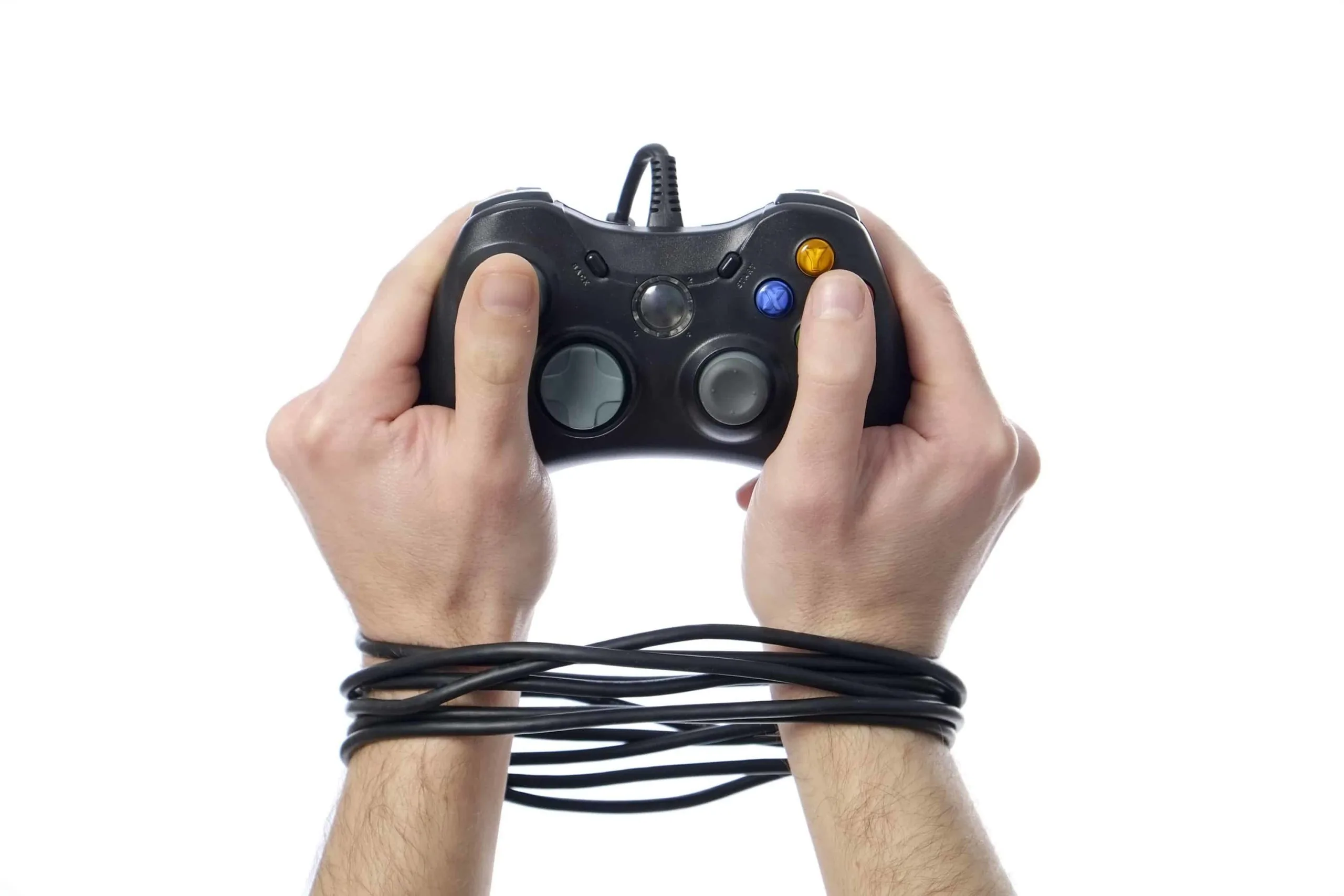
Introduction
If you’re reading this article then you’re probably a gamer, you have probably spent countless hours exploring amazing worlds, saving the world multiple times, leading armies and building nations. All of these experiences are unique and extremely entertaining, only gaming can give us these.
But there is also a dark side to these fantasy worlds, sometimes people can get a little bit too immersed into these games, in that case a lot of people often wonder, how many hours of gaming is bad for you?
It can be a bit difficult to say for certain how much time you should spend doing something you love, I mean isn’t that what life is about after all? But still we do have responsibilities and obligations that we can’t just let go of, in this case everyone is different and for someone 2 hours a week might be too much gaming, while for another that could be a small amount, per day!
In this article we are going to cover gaming addiction and what you can do to identify this problem and correct it if needed.
The Rise of Gaming
The rise of gaming is a phenomenon that has taken the world by storm. From its humble beginnings in the 1970s with arcade games and simple home consoles, the gaming industry has evolved into a multi-billion-dollar enterprise that spans the globe. Today, video games are not just a form of entertainment, but a cultural phenomenon that transcends age, gender, and nationality.
The advent of the internet and modern advances in technology have played a significant role in the growth of gaming. The development of more powerful gaming consoles and computers, coupled with the proliferation of smartphones and tablets, has made gaming more accessible than ever before. Now, anyone with a device and an internet connection can dive into a virtual world, whether it’s a fantasy realm, a futuristic city, or a realistic simulation of our own world.
The appeal of gaming lies in its ability to provide immersive experiences that captivate players. Video games offer a unique form of storytelling, allowing players to become active participants in the narrative. They also provide a platform for social interaction, with multiplayer games enabling players to connect, collaborate, and compete with others around the world.
Adding to this, esports has further propelled the popularity of gaming. Competitive gaming events draw millions of viewers, with top players achieving celebrity status and substantial earnings. This has not only legitimized gaming as a professional pursuit but also contributed to its widespread acceptance and popularity.
The gaming industry’s growth shows no signs of slowing down. With advancements in virtual and augmented reality, the boundaries of gaming are continually being pushed, offering even more immersive and engaging experiences. As gaming continues to evolve and innovate, its popularity is set to rise even further, solidifying its place as a significant part of our cultural landscape.
Understanding Video Game Addiction

With gaming becoming the world’s number 1 past-time it’s no wonder that some people are concerned about how much time we are spending gaming. That’s where the concept of video game addiction comes in. It is characterized by an uncontrollable urge to play video games, to the extent that it interferes with daily life. This compulsive behavior can have serious implications for a person’s mental, physical, and social well-being.
The concept of video game addiction is complex and multifaceted. It’s not merely about the number of hours spent gaming, but rather the extent to which gaming disrupts a person’s life. Symptoms of gaming addiction can include neglecting personal responsibilities, social isolation, and a loss of interest in other activities. In severe cases, individuals may experience withdrawal symptoms when not gaming, such as irritability, restlessness, or sadness.
Several factors contribute to the development of video game addiction. The immersive nature of modern video games, designed to captivate players for extended periods, is one such factor. These games often employ reward systems that trigger the release of dopamine, a neurotransmitter associated with pleasure and reward, reinforcing the desire to continue playing.
The social aspect of multiplayer games can exacerbate addictive tendencies. Players may feel compelled to keep up with their friends or teammates, leading to longer gaming sessions. The sense of achievement and progression, especially in games with competitive elements, can also fuel addictive behaviour.
Understanding video game addiction is crucial in today’s digital age, where gaming is a prevalent form of entertainment. Recognizing the signs of addiction and seeking professional help, when necessary, can prevent gaming from becoming a problem. It’s important to remember that while gaming can be a fun and engaging pastime, like any activity, it should be enjoyed in moderation and balanced with other aspects of life.
Multiplayer and Online Games
I wanted to make an entire section focused on Multiplayer and Online games for a simple reason, they are often the biggest culprits when it comes to video game addiction. If you don’t believe me then just go take a look at game reviews of popular multiplayer games like Fortnite, League of Legends, Dota 2 and most MMOs. Many reviews will comically reference the number of hours they have played, with many of these reviewers racking up more than 2000 hours on a single game.
This simple fact hides a deeper meaning to multiplayer games, it’s not only the fact that we often want to do things with our friends more, or that the social aspect pushes us to play more to keep up with our friends, it’s simply that multiplayer games don’t end.
What do I mean by that? Well, think about it, if you were to listen to a music CD, it eventually ends and you need to play it again from the beginning, similarly a movie will need to be rewatched every time you want to experience it again, these experiences while amazing, eventually get boring after we experience more than a couple of times of the same thing.
Single player games eventually end, the game shows the credits and you either replay it from the beginning or do something else. This doesn’t happen with multiplayer games, in most of these experiences you finish one match and you can then click the “Queue Now” button to look for another match, the system will probably find you players to play with at any hour of the day, and this can be a problem because our brain doesn’t see every match as the same boring old game, but as an unique experience.
Dealing with Gaming Addiction

Gaming addiction is a serious issue that can have profound effects on a person’s life. However, with the right strategies and support, it is possible to overcome this challenge and regain control. Here are some steps to address gaming addiction.
Firstly, it’s crucial to acknowledge the problem. Denial can be a significant barrier to recovery. If gaming is causing distress or interfering with daily life, it’s time to seek help. This could involve confiding in a trusted friend or family member, or reaching out to a mental health professional. Therapists and counselors who specialize in addiction can provide valuable guidance and treatment plans.
Setting clear boundaries is another important step. This might involve designating specific times for gaming and sticking to them, or limiting the types of games played. It’s also beneficial to remove triggers that lead to excessive gaming. For instance, if certain friends or online communities encourage long gaming sessions, it might be necessary to distance oneself from these influences.
Replacing gaming with other activities can also be helpful. Engaging in physical exercise, pursuing a new hobby, or spending time with friends and family can provide alternative sources of enjoyment and fulfillment. This not only reduces the time spent gaming but also helps to develop new skills and social connections.
Support groups can also be beneficial. Connecting with others who are facing the same struggles can provide a sense of community and understanding. Online forums and local support groups can offer a safe space to share experiences and coping strategies.
Finally, it’s important to practice self-care. Regular exercise, a balanced diet, and adequate sleep can improve mood and energy levels, making it easier to resist the urge to game excessively.
Conclusion
Video gaming addiction can be a serious problem, and with games becoming more and more immersive, this problem will only become worse. Ignoring the problem is not going to make it go away, and while you might not be affected surely you know someone who could use these tips to take control of their life.
Nowadays gaming is so common that sometimes we normalize spending all day in front of a screen, instead of doing things in the real world. There is a balance to all things and that includes gaming, you can enjoy your favorite games as long as you are conscious of the time you are spending in these worlds.
Related
- Gaming Hacks: Insider Tips and Guides for an Immersive Experience
- Game On: The Ultimate Guide to Choosing the Perfect Gaming Laptop








